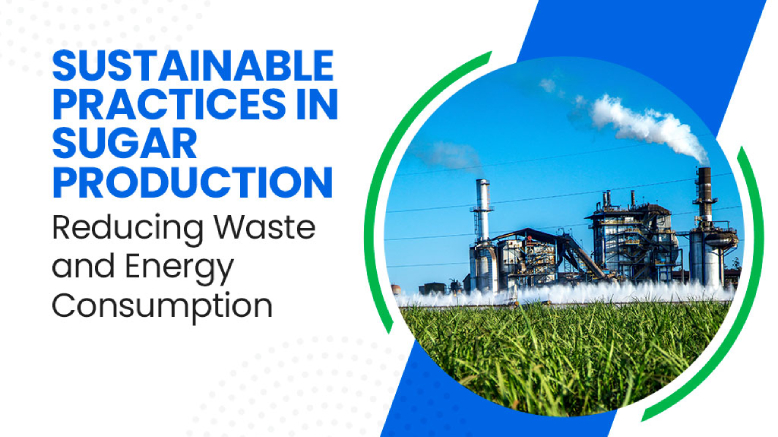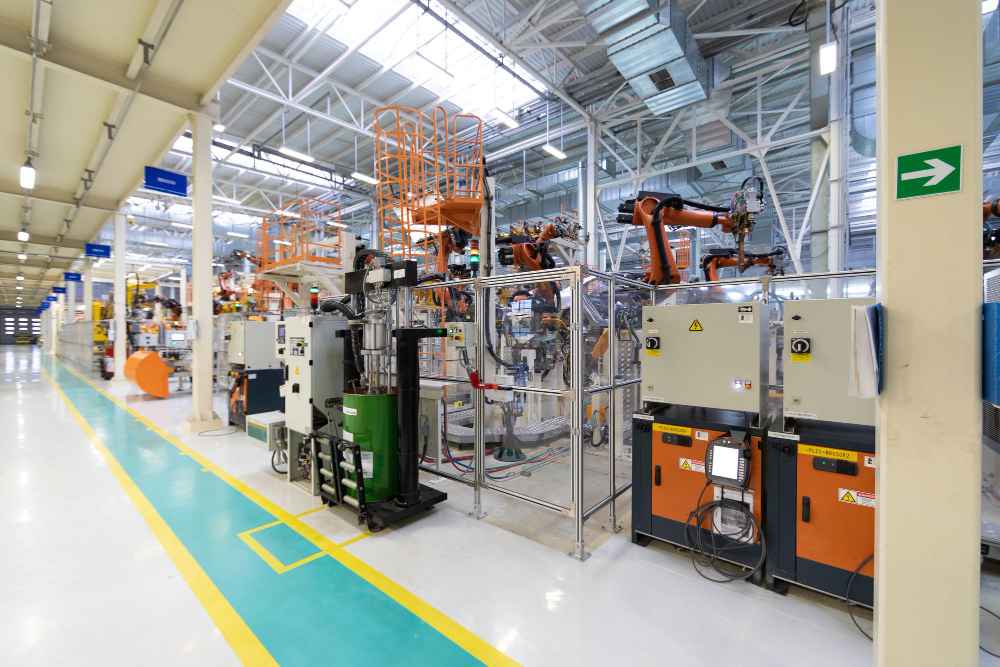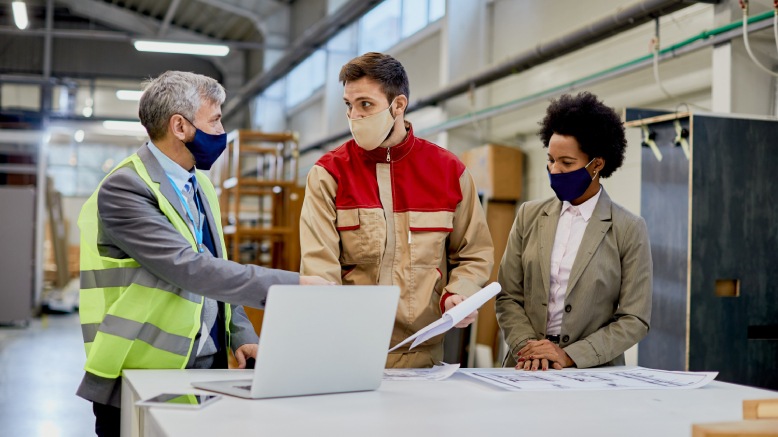
Sustainable Practices in Sugar Production: Reducing Waste and Energy Consumption
Sustainability in sugar production is vital for reducing the environmental footprint of the industry. As global demand for sugar continues to rise, adopting sustainable practices ensures that production processes are efficient, environmentally friendly, and economically viable.
Traditional sugar production methods often involve significant waste and high energy consumption. These methods can lead to deforestation, water pollution, and excessive greenhouse gas emissions. By contrast, sustainable practices aim to minimize these negative impacts through innovation and efficiency.
Reducing Waste in Sugar Production

Advanced Milling Equipment
1. Use of Efficient Trash Plates and Rollers to Maximize Cane Juice Extraction
Efficient trash plates and rollers are designed to optimize the extraction of cane juice, reducing the amount of sugarcane that goes to waste. These components are engineered to handle larger volumes of cane and extract more juice per batch, improving overall efficiency.
2. Benefits of Using High-Quality Hammer Tips and Conveyor Belts to Minimize Losses During Processing
High-quality hammer tips and conveyor belts are essential for minimizing losses during the processing stage. Hammer tips efficiently break down the cane, while durable conveyor belts ensure smooth transport of materials with minimal spillage. These components contribute to a more streamlined process with less waste.
Waste Management
1. Strategies for Recycling and Repurposing By-Products Such as Bagasse and Molasses
Recycling and repurposing by-products like bagasse and molasses are crucial for sustainable sugar production. Bagasse, the fibrous residue left after juice extraction, can be used as a biofuel or as raw material for producing paper and building materials. Molasses, a by-product of sugar refining, can be used in the production of ethanol or as a feedstock for livestock.
2. Implementation of Waste-to-Energy Solutions
Waste-to-energy solutions involve converting by-products into energy, which can then be used to power the sugar mill or sold to the grid. For example, bagasse can be burned in boilers to produce steam and electricity, significantly reducing the need for fossil fuels. This not only minimizes waste but also contributes to energy efficiency and sustainability.
Energy Consumption Reduction

Energy-Efficient Equipment
1. Importance of Using Modern Boiler Tubes and Juice Heater Tubes to Enhance Energy Efficiency
Modern boiler tubes and juice heater tubes are critical for enhancing energy efficiency in sugar mills. These advanced tubes are designed to maximize heat transfer, thereby reducing the amount of fuel required to generate the necessary heat for processing. Efficient heat exchange means less energy is wasted, leading to significant energy savings.
2. Role of Insulated and High-Performance Boiler Tubes in Reducing Energy Consumption
Insulated and high-performance boiler tubes play a vital role in minimizing heat loss during the steam generation process. By maintaining higher temperatures within the tubes, these components reduce the need for additional fuel to maintain desired heat levels, thereby lowering overall energy consumption. This insulation ensures that the maximum amount of energy is utilized for the intended purpose, improving overall efficiency.
Cogeneration and Energy Recovery
1. Utilizing By-Products Like Bagasse for Cogeneration to Produce Electricity and Steam
Cogeneration, or combined heat and power (CHP), involves using by-products such as bagasse to produce electricity and steam. Bagasse, the fibrous material left after sugarcane juice extraction, can be burned in boilers to generate steam, which drives turbines to produce electricity. This process not only reduces waste but also provides a sustainable source of energy for the sugar mill, lowering reliance on external power sources.
2. Case Studies Showcasing Successful Energy Recovery Implementations
Many sugar mills have successfully implemented cogeneration systems to harness the energy potential of bagasse. For instance, a case study from Brazil highlights a sugar mill that achieved significant energy savings and reduced greenhouse gas emissions by using bagasse for cogeneration. This approach not only provided the mill with a reliable source of electricity and steam but also contributed to the local power grid, demonstrating the broader benefits of energy recovery.
Sustainable Water Management

Efficient Water Use
1. Techniques for Optimizing Water Use in the Milling and Processing Stages
Optimizing water use in sugar milling involves implementing techniques such as closed-loop water systems, which recycle water within the mill, and utilizing water-efficient equipment. These practices ensure that water is used sparingly and reused whenever possible, reducing the overall water footprint of the sugar production process.
2. Implementation of Water Recycling Systems to Reduce Freshwater Consumption
Water recycling systems play a crucial role in minimizing freshwater consumption. By treating and reusing process water, sugar mills can significantly cut down on the need for fresh water. Technologies such as ultrafiltration and reverse osmosis are employed to purify water, making it suitable for reuse in various stages of sugar production.
Pollution Control
1. Methods for Treating Wastewater Before Discharge to Minimize Environmental Impact
Treating wastewater before discharge is essential for minimizing the environmental impact of sugar mills. Techniques such as sedimentation, biological treatment, and chemical coagulation are used to remove contaminants from wastewater. These methods ensure that the water released into the environment meets regulatory standards, reducing pollution and protecting local ecosystems.
By adopting these sustainable practices, sugar mills can significantly reduce their environmental impact while improving efficiency and profitability. Euroindustriel’s advanced equipment and technologies support these efforts, making sustainability an achievable goal for the sugar industry.
Euroindustriel’s Contribution to Sustainability

Overview of Euroindustriel’s Mill Equipment Designed for Sustainability
Euroindustriel offers a range of advanced mill equipment designed to enhance sustainability in sugar production. Our products include high-efficiency trash plates, rollers, hammer tips, conveyor belts, boiler tubes, and juice heater tubes, all engineered to reduce waste and energy consumption.
Equipment Breakdown
- Trash Plates and Rollers: These components maximize cane juice extraction, reducing waste.
- Hammer Tips and Conveyor Belts: Designed to minimize losses during processing and ensure efficient material handling.
- Boiler Tubes and Juice Heater Tubes: Enhance energy efficiency through superior heat transfer and insulation.
Supporting Sustainability Goals
Euroindustriel supports sugar mills in achieving sustainability goals by providing advanced equipment and technology. Our solutions are designed to optimize resource use, reduce environmental impact, and improve operational efficiency. We also offer expert consultation and technical support to help mills implement these sustainable practices effectively.
Future Trends in Sustainable Sugar Production
Emerging Technologies and Practices
- Precision Agriculture: Using drones and sensors for optimal crop management.
- Biodegradable Packaging: Developing sustainable packaging solutions for sugar products.
- IoT and Automation: Enhancing process efficiency and monitoring through advanced IoT systems.
Predictions for the Future
The future of sustainable sugar production will likely see increased adoption of renewable energy sources, advanced waste management techniques, and greater emphasis on circular economy principles. Innovations in biotechnology and process optimization will continue to drive the industry towards more sustainable practices.
Reducing waste and energy consumption is crucial for the sustainability of sugar production. These practices not only minimize environmental impact but also enhance the economic viability of sugar mills.
Adopting sustainable practices with the help of Euroindustriel’s advanced equipment can significantly improve the efficiency and sustainability of sugar mills. Our products and solutions are designed to support these goals.
Contact Euroindustriel today to learn more about our sustainable solutions and how we can help your sugar mill achieve its sustainability targets. Together, we can make sugar production more efficient and environmentally friendly.















